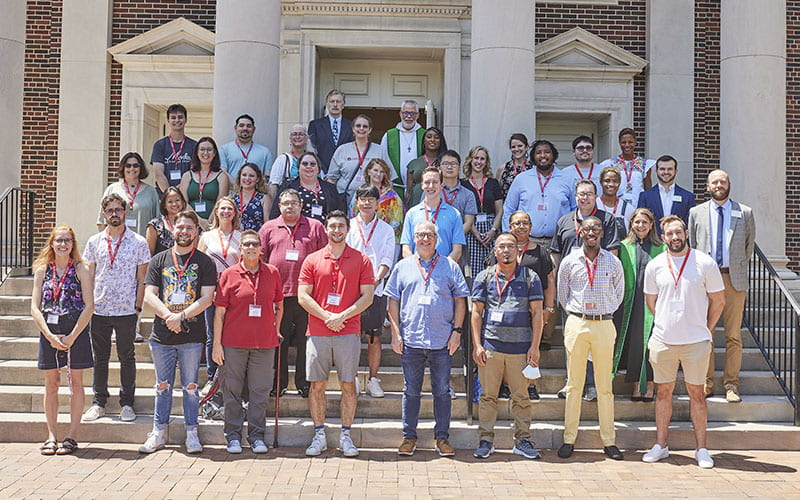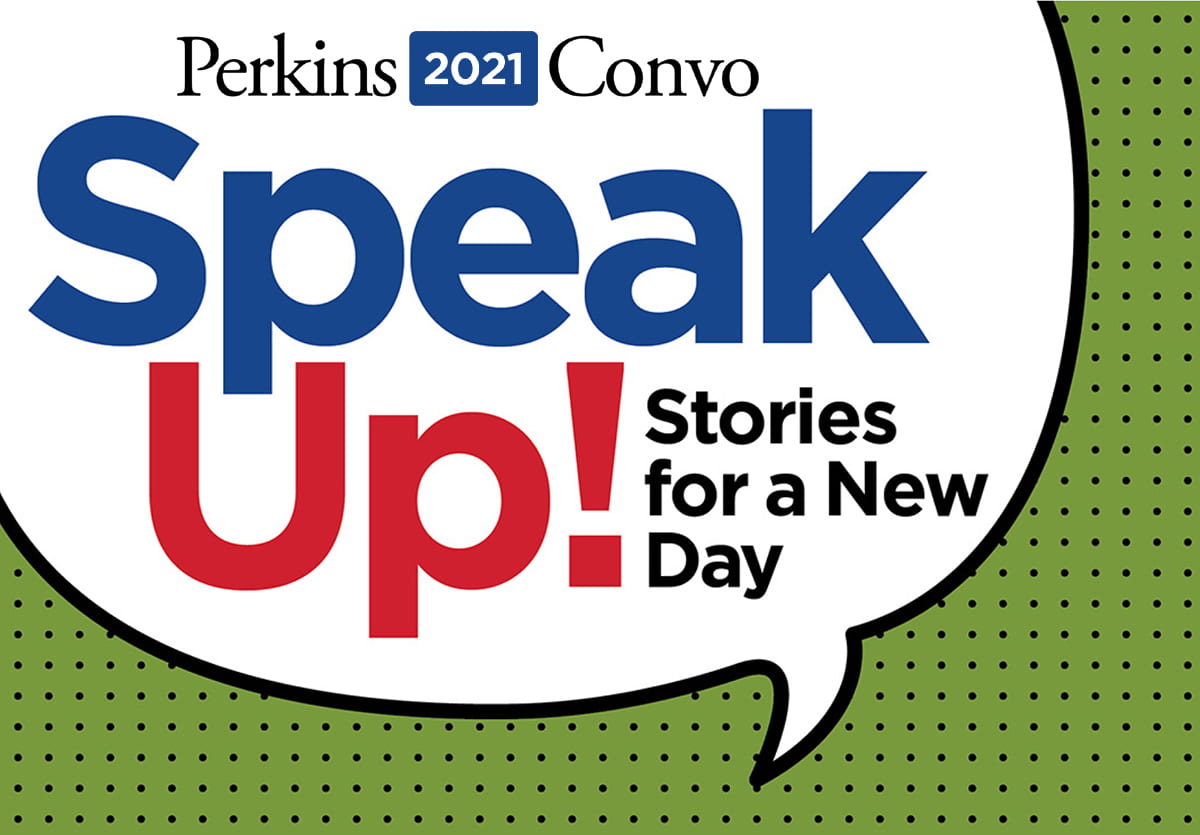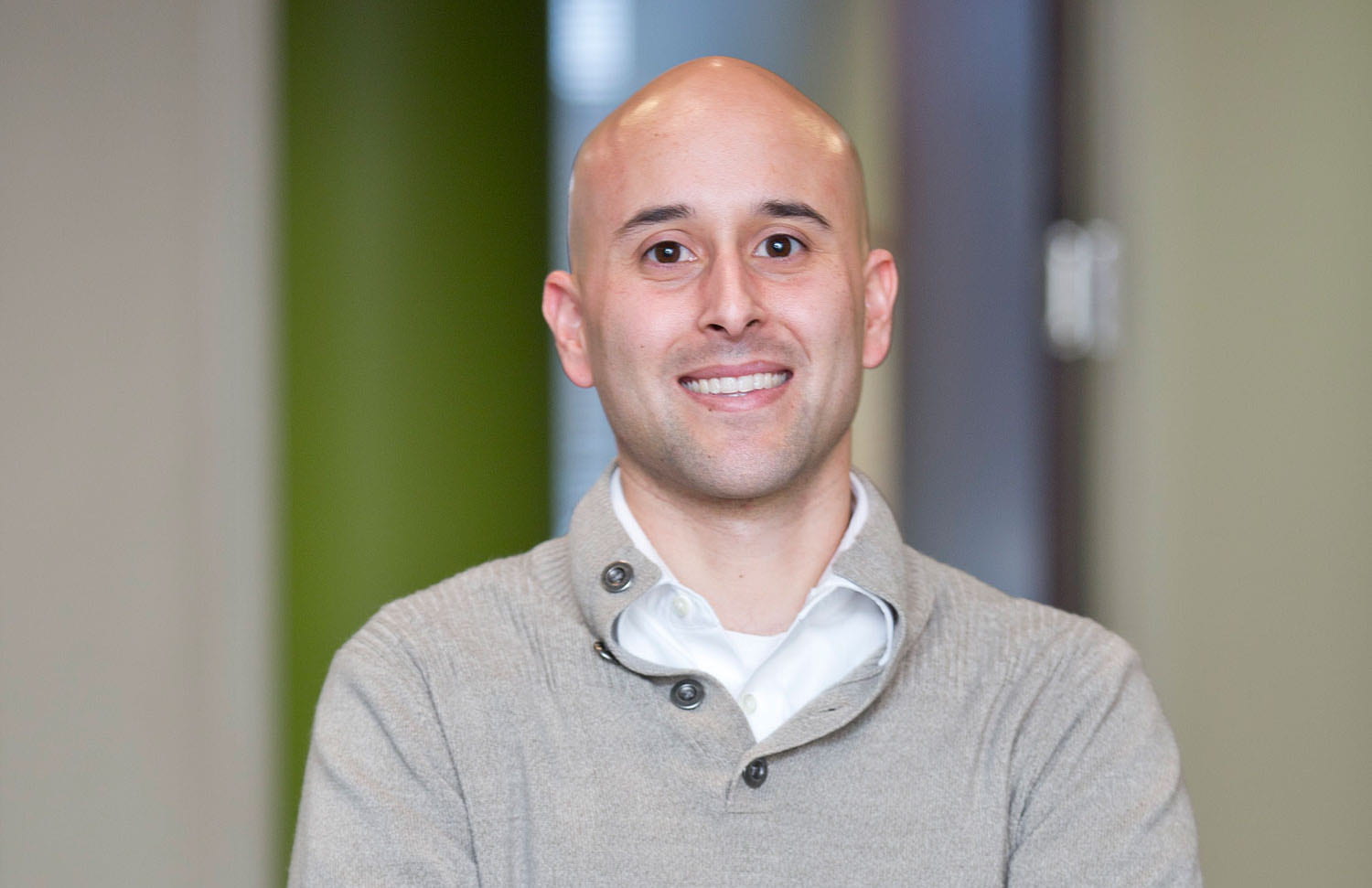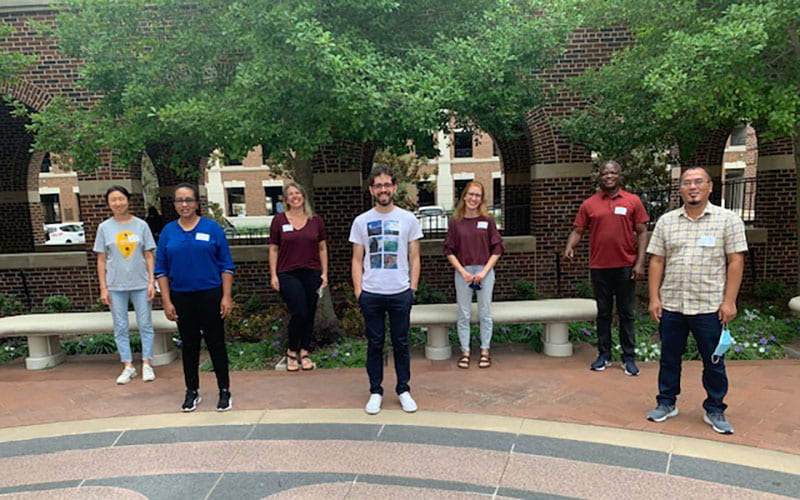I am writing by way of follow-up to my sermon “A Modest Proposal: Let’s Tell the Truth About Each Other,” distributed in last month’s online Perspective. (Click here to read the sermon.)
In that sermon, I said that people are often tempted, especially in today’s highly polarized culture, to score points by misrepresenting their opponents and even themselves. I would like now to explore that idea further with particular (but not exclusive) reference to The United Methodist Church.
If we look only at one subset of the whole—in this case, at only one specific denomination—the distinctions within it will nearly always appear more polarized than they actually are. “Conservative United Methodists are all… Liberal United Methodists are all…” With respect to labels, I appreciate the point made by Rev. George Sinclair of the Anglican Church of Canada: “First of all, ‘liberal’ and ‘conservative’ are political, not theological, words. When you use words which are primarily used in the political realm to try and distinguish between churches and denominations, you will keep making mistakes about what the groups are like.” (Link)
Methodism in America has a long track record of dissensions and divisions. A surprising number of offspring denominations have been formed by breakaway groups over the past two centuries. It is instructive to study them. Consider the Southern Methodist Church (SMC)[1], headquartered in South Carolina. Here is the story of their founding in their own words:
The Birmingham General Conference [of the Methodist Episcopal Church, South] in 1938 decided to enter into a union with the Methodist Episcopal Church and the Methodist Protestant Church. When the three were formally united in 1939, there were many in the Methodist Episcopal Church, South who refused to enter into the union because of the modernistic tendencies found in the United Church.
A layman’s organization for the preservation of the Methodist Episcopal Church, South was formed and culminated in a convocation in Columbia, South Carolina, on January 14, 1940, at which four hundred (400) representatives of the Church set up a provisional plan for preserving the Church. The courts granted to the United Church all properties and the control of the name, Methodist Episcopal Church, South. The dauntless few, maintaining their earnest convictions to perpetuate true Methodism and fundamental doctrines, organized the South Carolina Conference. (Link)
A contemporary statement reiterates their mission: “The Southern Methodist Church seeks to carry out this Biblically-revealed purpose through adherence to the Biblical beliefs and historic traditions of Methodism.” (Link)
Among the biblical beliefs and church traditions that the Southern Methodist Church (SMC) continues to uphold are the following:
1) “We believe in the original manuscripts of the Bible as the inerrant Word of God, verbally inspired; by this we mean that inexplicable power which the divine Spirit put forth of old on the authors of Holy Scripture, in order to guide them even in the employment of the words they used, and to preserve them alike from all error and from all omission.” (Link)
2) It therefore follows that “The Genesis account of creation and early human history is to be accepted literally. God created man, animals, and plant life, and none of these were the result of an evolutionary process. God completed the creation process in six days and rested on the seventh day.” (Link)
3) No one may serve in the ministry “if either spouse is divorced, or has been divorced, except in the case of innocent parties who have been divorced for scriptural cause” [porneia, “sexual immorality,” according to Matthew 5:31-32.] [Emphasis mine.] (Link)
4) “The Southern Methodist Church does not recognize women as preachers with authority to occupy the pulpit or to preach as ministers of the Lord Jesus Christ, nor does it authorize a preacher in charge to invite a woman claiming to be a minister of the Lord Jesus Christ to occupy its pulpits to expound the scriptures as a preacher. Such invitations and services are against the authority and order of the church.” (Link)[2]
From their perspective, members of the SMC could with justification regard nearly all United Methodists as radical cultural accommodationists and relativists.[3]
Of course, the reality is that all churches, including the SMC, make accommodations, whether or not they admit it. The Methodist Episcopal Church, South, their parent denomination, split off in 1844 over the issue of slavery. The presenting issue was not a stance on biblical authority but rather the fact that a southern bishop, James Osgood Andrew, had inherited enslaved people from his wife’s family, and state law had been changed to forbid manumission (the freeing of slaves). The northern church wanted to suspend Andrew, but the southern church rallied to his side, leading the southern delegates to leave and form a separate denomination. Both sides subsequently used the Bible to their advantage (see below), but it is fair to say that one’s view of slavery was a better predictor of one’s interpretation of scripture than the reverse.
Though not an offshoot of Methodism, a striking example on the other side of the ledger is the Universal Life Church, founded by Kirby J. Hensley in 1959. Hensley, originally a Baptist and then a Pentecostal, came to reject the doctrine of the divinity of Jesus while believing in reincarnation, though he did not require any such beliefs of church members. His overarching goal was the unification of all religions, which meant requiring as few specific beliefs and practices as possible. It is an example of a church in which the aim of “full inclusion” is of singular importance. Members include persons who self-designate as Christians, Jews, Wiccans, pagans, and atheists, among others.
The United States Army includes the following entry in its publication Religious Requirements and Practices: A Handbook for Chaplains:
The Universal Life Church has only one belief. They believe in that which is right and in every person’s right to interpret what is right. The Universal Life Church has no creed or authoritative book such as a Bible….The Universal Life Church is open and accepting of people of all religions. It is opposed only to those religions that attempt to deny religious freedom. Any minister in the ULC can ordain new members.[4]
It should go without saying that the overwhelming majority of United Methodists look downright “traditional” and “exclusive” by comparison. But even the inclusiveness of the ULC has its limits. What religions exactly are those that “attempt to deny religious freedom”? It all depends on what you mean by “religious freedom,” especially whether one is speaking about civil liberties or about religious particularism (that is, the making of truth claims, such as those contained in the baptismal liturgy, that may serve to exclude those who disagree).
The “Quadrilateral”
The so-called Wesleyan Quadrilateral is often referred to in The United Methodist Church. It suggests that we might appeal to scripture but also to tradition, reason, and experience when forming our stance on issues of faith or practice. The standard view is that conservatives prioritize scripture and tradition while progressives lean most on reason and experience. This is partly but by no means wholly true. For example, an obvious exception is progressives’ lifting up of biblical passages, especially in the prophets and the gospels, that make justice and social concern essential expectations of believers. Likewise, I have yet to meet a Christian, no matter how “traditional,” who defends slavery.
It is worth considering briefly three previous controversies and what they tell us about the way Christians have employed these sources.
1. Women’s Ordination
We have already seen that the Southern Methodist Church, based on its commitment to scripture, does not ordain women. It is therefore worth noting that Holiness-oriented conservative Methodists (in other words, Methodists who emphasized the importance of experience) were at the forefront of Methodist churches’ authorization of women as ordained elders. Of all the Wesleyan/Methodist denominations in the United States, the more liberal Methodist Church was dead last in ordaining women as full elders (1956). Moreover, the motion to ordain women as full elders at that general conference was made by the president of Holiness-oriented Asbury College.
What is true of the UMC is true more broadly of American Protestantism. Jarena Lee (1783-1864) believed that she had been called by God to preach in the African Methodist Episcopal Church, but the denomination’s founder, Richard Allen, said that there was no provision for women preachers. Years later, Allen actually heard Lee speak, and on that basis changed his mind. In much the same way, women found a voice in Pentecostalism, which emphasized immediate experience of the Spirit. If Sister Jones has a gift from God, who are we to prevent her from using it?
I will say more about the role of experience in shaping belief below, but let me note that I am by no means suggesting that experience is an infallible guide, only that it often has indeed been a guide for persons of varying theological orientations. It is the chief basis on which a wide range of churches came to believe in women’s ordination. Churches that are much more grounded in tradition, such as the Roman Catholic Church, have typically resisted such change.
2. The Split of 1844
It was conservative Wesleyan groups like those that formed the Wesleyan Methodist Church and the Free Methodist Church that were staunchly abolitionist and regarded other Methodists—including the Methodist Episcopal Church—as seriously compromised for failing to advocate for elimination of human enslavement.
One could argue that the perspective of the Wesleyan and Free Methodists was in conformity with tradition, inasmuch as John Wesley himself had repudiated slavery. On the other hand, one could equally argue that Wesley himself had ignored the far longer tradition of Christian toleration of slavery.
Likewise, the position of scripture is at best ambiguous. While abolitionists could cite biblical paradigms (such as the Exodus) and broad theological themes (such as the inclusion of slaves “in Christ”; Galatians 3:28), pro-slavery Christians had much chapter and verse in their favor. For example, Abraham owned slaves (Gen. 12:16), the later Levitical law allowed Israelites to own slaves (Leviticus 25:44; the laws were much harsher for Gentile slaves), slavery is widely assumed in other books in the Hebrew Bible (e.g., Proverbs 19:10; Isaiah 14:2), and it remained fundamentally unchallenged in the New Testament. Especially useful to slaveholders were passages such as 1 Timothy 6:1 and Titus 2:9 that require of slaves ungrudging obedience to their masters.
Reason and experience could also be thought to provide justification for either side. It was argued on the basis of what was thought to be rational observation that African slaves were at best an inferior sort of human, fitted by God for servitude. It was even argued that Blacks were happiest in that role and were incapable of functioning as free persons. The great notoriety of Frederick Douglass was based on the fact that he was a Black man, a runaway former slave, with enormous and undeniable powers of reason and oratory. Which example did you believe? A lot depended on what you were in a position to see and, most especially in the case of slaveholders, what would best advance you economically.
A great many Christians died in defense of what we today would calmly dismiss as an indefensible position. When a controversy, even one as heated as this, is long in the rearview mirror, it is easy to regard its ultimate result as inevitable, obvious, and straightforward. At the time, it was nothing of the sort.
3. The Admission of Gentiles
Let’s go all the way back to the beginning. We often idealize the early Christians, and they did indeed evidence many heroic and noble virtues. Nevertheless, they like us sometimes disagreed amongst themselves. In my first book[5], I argued that the available evidence does not suggest that these disagreements were so basic as to signify the existence of fundamentally different Christianities.[6] That did happen in time, but not, I believe, in the first decades of the church.
The main point of contention concerned the relationship between Judaism and the new faith, especially as it pertained to Gentiles. Just as there is a spectrum of opinion today, so it was then. The “Judaizers” believed that Gentile Christians still needed to be fully proselytized into Judaism, including obedience to the commandments to circumcise males and to obey Jewish food laws. According to Acts 15, the church of Jerusalem offered a compromise: Gentiles did not need to become Jewish, but they ought at least to obey laws consistent with the Hebrew Bible’s expectations of “resident aliens” in Israel (e.g., see Leviticus 17:8-14 and 18:24-30). Paul, apostle to the Gentiles, came to occupy what we might call the “progressive” position: here and now, Gentile as well as Jewish believers were fully and equally members of the people of God and offspring of Abraham (Romans 9:7; Galatians 3:28). Further, obedience to laws that differentiated Jews from Gentiles, including both circumcision and food prohibitions, were now considered unnecessary (Romans 2:27-28; 1 Corinthians 4:17-18; Galatians 5:6).
This debate is perfectly understandable. Whenever someone proposes a significant reinterpretation of scripture, especially one that changes who’s in and who’s out, there is bound to be heated disagreement. There is some support in the Hebrew Bible, particularly in the latter chapters of Isaiah, for the notion that at least some Gentiles would become part of Israel in the (probably eschatological) future, but even there it was never said that they would not have to obey the Jewish law. On the other hand, persons such as Paul’s opponents at Galatia could easily quote scripture against him. Genesis 17:9-10, 14 appears to have been part of their repertoire:
God said to Abraham, “As for you, you shall keep my covenant, you and your offspring after you throughout their generations. This is my covenant, which you shall keep, between me and you and your offspring after you: Every male among you shall be circumcised….Any uncircumcised male who is not circumcised in the flesh of his foreskin shall be cut off from his people; he has broken my covenant.”
How was the admission of Gentiles justified with so little scriptural warrant? Most often by experience, which appears to be how it happened initially. Acts 10-11 tells the story of the conversion of the first full-blooded Gentiles, Cornelius and his family. Acts makes it clear that Peter, the obedient Jew, resisted going to Cornelius but was given little choice by God. Before he even finished his sermon—another signal that this was God’s doing, not Peter’s—the Holy Spirit fell on the Gentiles, evidenced by “speaking in tongues and extolling God” (10:46). Peter therefore baptized them and returned to the Jerusalem church, where he was met with opposition. He recounted the event in detail and ended his defense with this crucial point, “If then God gave them the same gift that he gave us when we believed in the Lord Jesus Christ, who was I that I could withstand God?” (Acts 11:17). Upon hearing this, the Jewish believers “were silenced” and then “praised God, saying, ‘Then God has given even to the Gentiles the repentance that leads to life.’” (11:17-18).
The issue of Gentile admission was argued most heatedly in Paul’s epistle to the Galatians. It is instructive that his first, simplest, and most powerful argument is this: “Did you receive the Spirit by doing the works of the law or by believing what you heard?” (Galatians 3:2). Paul then turns to arguments from scripture, the first of which attempts to circumvent the obvious meaning of Genesis 17 by appealing instead to Genesis 15:6: “And he believed the Lord; and the Lord reckoned it to him as righteousness.” That might be a knock-down debating point to a Gentile Christian, but it likely didn’t cut much ice with his opponents, who could counter, “Why then did God subsequently command circumcision and even state that any male not circumcised has broken the covenant and should be removed from his people?”
The issue was never truly resolved, which is also understandable. Instead, the church gradually became an overwhelmingly Gentile institution in which the subject seemed increasingly irrelevant. The main point is again the influence that experience had on biblical interpretation. It encouraged the most radical and consequential change of practice in the history of Christianity.
Simplicity and Complexity
Oliver Wendell Holmes, Sr. is quoted as saying, “For the simplicity on this side of complexity, I wouldn’t give you a fig. But for the simplicity on the other side of complexity, for that I would give you anything I have.” One of our core problems is that we continue to reason on this side of complexity, which means that we don’t account for the actual complexity of our situation. In the sermon mentioned above, I listed several of the rhetorical stratagems employed to “keep things simple,” all of which require the misrepresentation of opponents. “All others are thieves and robbers!” What is actually a spectrum is portrayed instead as a clear-cut dichotomy. We ape the political speech of the day rather than treating each other honestly because, frankly, those partisan strategies work.
If we look closely at how scripture, tradition, reason, and experience have been employed down the years, it becomes clear that there is no simple formula by which Christians have resolved moral dilemmas and controversies about inclusion. Each element of the Quadrilateral is important, and each can be abused by being given, in effect, arbitrary veto power over the others.
We have examined the vital role that experience played in each of the three controversies discussed. This might lead to the impression that experience should exercise unfettered authority. That, I readily admit, would lead to chaos since individual experience is by its nature self-referencing. Anything could be justified on this basis. Its use has to be tempered in various ways, such as by asking critical questions about the fruits of the experience, the extent of its occurrence, and its cause, insofar as it can be determined. Beyond that are the checks of scripture, tradition, and reason. Of course, these themselves are not uncomplicated witnesses.
Tradition is likewise important but also problematic. There are core tenants of the faith that have been widely believed by Christians for two millennia. On the other hand, “traditional” Christianity has tolerated many things that nearly all United Methodists today reject. As with experience, we have to ask ourselves what controls we put on the employment of tradition as a marker of truth. Also, it has to be recognized that all but a few generations of Christians before us lived in a pre-scientific world. They did not know about the age and even the shape of the earth, about the causes of natural disasters, about DNA, genes, and genetic mutation, about germs and the nature of sickness, or about brain chemistry.
Reason is vitally important, but who decides what is reasonable? You would not by reason alone likely come to a belief in the resurrection of Christ, although you might well use reason to defend the assertion that early Christians staked their lives on their conviction that it was true (e.g., 1 Corinthians 15:14). Does reason require the presupposition that God cannot act in human history or that God simply cannot exist? The question of what constitutes “reasonable reason” is at the heart of contemporary debates between religious believers and their secular detractors.
Finally, scripture. Would that biblical interpretation were always easy. As I hope the above examples demonstrate, it is not. How we read the Bible, what we emphasize and what we overlook, is greatly influenced by our context. That is true of everyone. It is remarkable, for example, how so many denominations that claim to adhere strictly to scripture disagree with each other about what it actually says.
So that I am not misunderstood, let me say that scripture remains for me foundational and irreplaceable. It is always my starting point. I have devoted my life to studying and teaching it. Even as a teenager, I attended hundreds of Bible studies, color coded my entire Thompson’s Chain Reference Bible, read whole commentaries, and memorized stacks of Navigators Bible memory cards. I did not come to my current opinions quickly or lightly, nor do I believe that my faith has changed dramatically. I am still what some would call a “creedal Christian.” Nothing I have learned has encouraged me to throw off the faith “once for all delivered to the saints” (Jude 3). Nevertheless, I now recognize that things are not so straightforward as I once believed. With Paul, I can say in truth and in hope, “For now we see in a mirror, dimly, but then we will see face to face. Now I know only in part; then I will know fully, even as I have been fully known” (1 Corinthians 13:12). I often say that I belong to the “life is complicated” school of exegesis, though even that statement needs to be tempered. The commands to love God and love neighbor are not difficult to comprehend. The difficulty is in the doing.
One personal example. A scholar whom I greatly admire is a pacifist, and I have to admit that he has a strong biblical argument, especially from the gospels. Since most Americans are not pacifists, we might think this an inconsequential issue. It is not. At stake is whether Christians can kill other people, including other Christians. It is difficult to imagine a more foundational moral imperative. I am not however a thoroughgoing pacifist myself, though I abhor violence. As significant as this disagreement is, the two of us have remained in close fellowship for decades. He has not written me off despite our disagreeing over so important an ethical issue, nor to my knowledge have either of us ever mischaracterized the other’s position. In short, we needn’t turn others into outcasts because we disagree. They ought not to be our enemies but, if so, we are commanded to love our enemies.
A Matter of Perspective
Many great church leaders defy stereotype. E. Stanley Jones is fairly characterized as a conservative Wesleyan Evangelical. Among other things, he taught at Asbury College when on furlough from India. Still, he had enormous influence on global politics and progressive culture: he advocated Indian independence from the British Raj and was banned from India for many years for that reason. His little book on Gandhi inspired Martin Luther King, Jr.’s advocacy of civil disobedience as a way of protest in the U.S. civil rights movement.
Toward the end of his long career, Argentinian Methodist liberation theologian Jose Miguez Bonino became convinced that the Pentecostal movement in Central and South America had faithfully carried on the Wesleyan tradition of engagement with the poor. This was in contrast to American liberal Methodism, which tended to neglect or deride the role of Pentecostalism in liberation.
So much of how we characterize ourselves and each other is a matter of perspective. Let me give an example concerning perspective from another field, namely business. Below is a graph of a fictitious company’s revenue between the years 1995-97. The differences appear quite dramatic.

And here is a graph of that same company’s revenue between 1990-2000. In this chart, 1995-1997 would seem to be a period of exceptional stability.

Perspective matters. The more you limit your data set, the more pronounced the differences within it are likely to appear. The same goes for how those data are represented. Notice that the scale in the first graph is only from 10 to 15, but in the second graph it is from 1 to 21+. Also, the first chart is taller, and the second is wider. It is not hard to manipulate and thus to distort the significance of facts.
In Conclusion
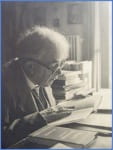 Decades ago here at Perkins School of Theology, John Deschner was employed as a faculty member. He was a politically progressive Neo-Orthodox theologian who wrote his dissertation on Wesley’s Christology under Karl Barth at Basel (photo at left is of Barth with Deschner’s book on his desk). John gave his life to Faith and Order (ecumenical) work, writing significant portions of “Baptism, Eucharist and Ministry” and serving as foil to another faculty member, Schubert Ogden, who represented the progressive/liberal/Modernist side. They co-taught the foundational two-semester “Credo” course. Despite occupying quite different places on the theological spectrum, they developed over time a keen ability to work well together even while sharply disagreeing.
Decades ago here at Perkins School of Theology, John Deschner was employed as a faculty member. He was a politically progressive Neo-Orthodox theologian who wrote his dissertation on Wesley’s Christology under Karl Barth at Basel (photo at left is of Barth with Deschner’s book on his desk). John gave his life to Faith and Order (ecumenical) work, writing significant portions of “Baptism, Eucharist and Ministry” and serving as foil to another faculty member, Schubert Ogden, who represented the progressive/liberal/Modernist side. They co-taught the foundational two-semester “Credo” course. Despite occupying quite different places on the theological spectrum, they developed over time a keen ability to work well together even while sharply disagreeing.
It is possible.
John Wesley’s sermon on “The Cure of Evil Speaking” defined “evil speaking” as “speaking evil of an absent person,” of those who did not have an opportunity to speak for themselves. Can you imagine what The United Methodist Church would be like if we all followed that counsel?
[1] Not to be confused with Southern Methodist University. To muddy the water even more, the SMC’s institution of higher education is Southern Methodist College located in Orangeburg, South Carolina.
[2] In 1920, the Methodist Episcopal Church granted women the right to be licensed as local preachers, expanding women’s opportunities in 1924 to include the possibility to serve as local elders or deacons, while still denying them conference membership. In 1930, the General Conference of the Methodist Episcopal Church South (from which the Southern Methodist Church was born) rejected clergy rights for women. Full clergy rights were not granted to women by the larger merged Methodist Church until 1956.
[3] Not mentioned in the SMC’s doctrinal statements but maintained by other Christian denominations are the biblical mandates that women cover their heads in church and wear their hair long (1 Corinthians 11:6), that they submit to their husbands (1 Peter 3:1-1, 5-6; Ephesians 5:22-23; Colossians 3:18, etc.), and that they not “braid their hair” or wear “jewelry or fine clothes” (1 Peter 3:3-4).
[4] U.S. Department of the Army, Religious Requirements and Practices: A Handbook for Chaplains (2001), p. VII-47-49, quoted in numerous sources, including https://wikimili.com/en/Universal_Life_Church#cite_note-Handbook-4. The ULC has come under criticism particularly for offering quick and easy online ordination, often used by lay persons who wish to conduct weddings. “The Universal Life Church believes that all people are naturally endowed with the right to control their own spiritual life, and thus that all those who feel so-called should have access to ordination.” (Link) Many millions of such ordinations have been authorized globally. Some wags succeeded in having their pets ordained (“That’s Rev. Bowser to you!”). Understandably, the ULC has taken steps to minimize such embarrassing occurrences.
[5] Hellenists and Hebrews: Reappraising Division within the Earliest Church (Minneapolis: Fortress Press, 1992).
[6] This is often postulated by those with an interest in defending their own different form of Christianity. A prominent example from the 19th century is a Christianity cleansed of Jewish influences.





